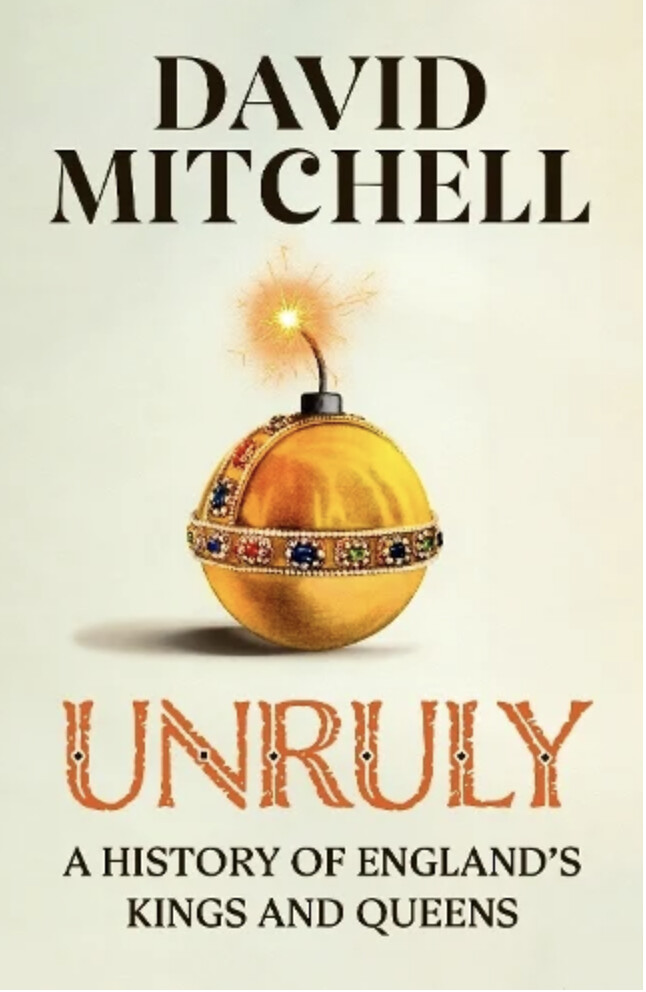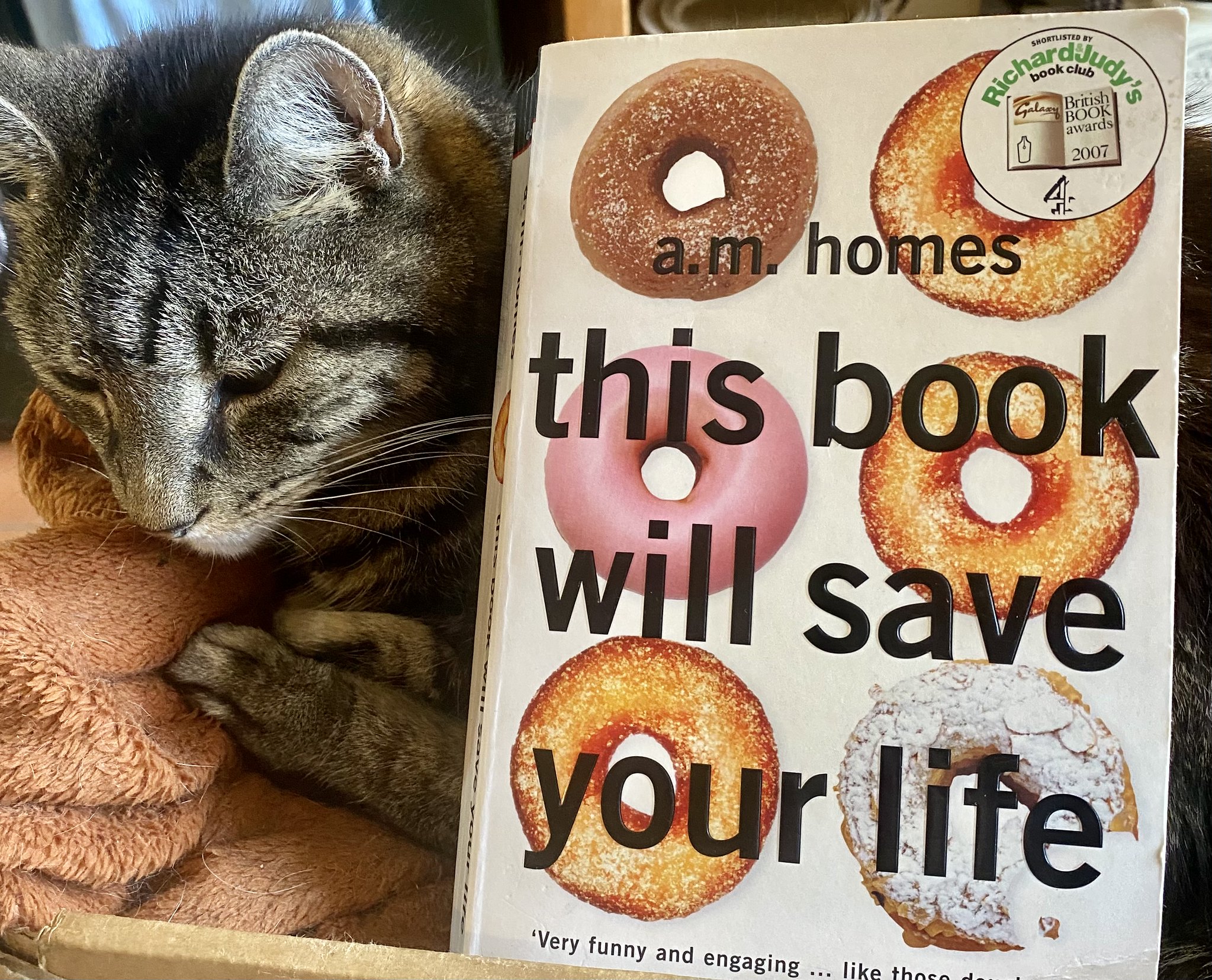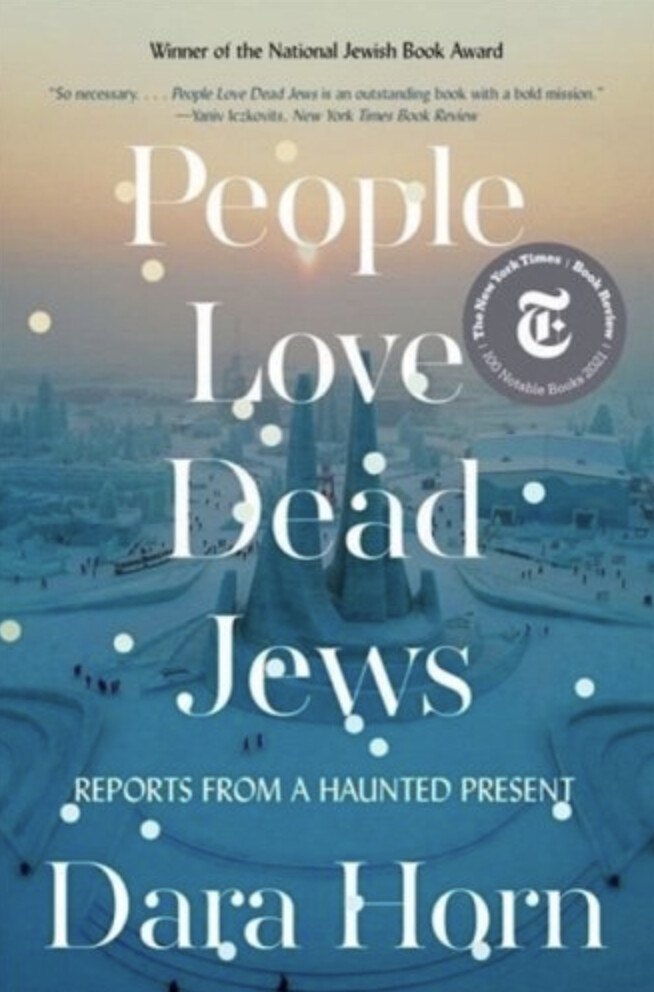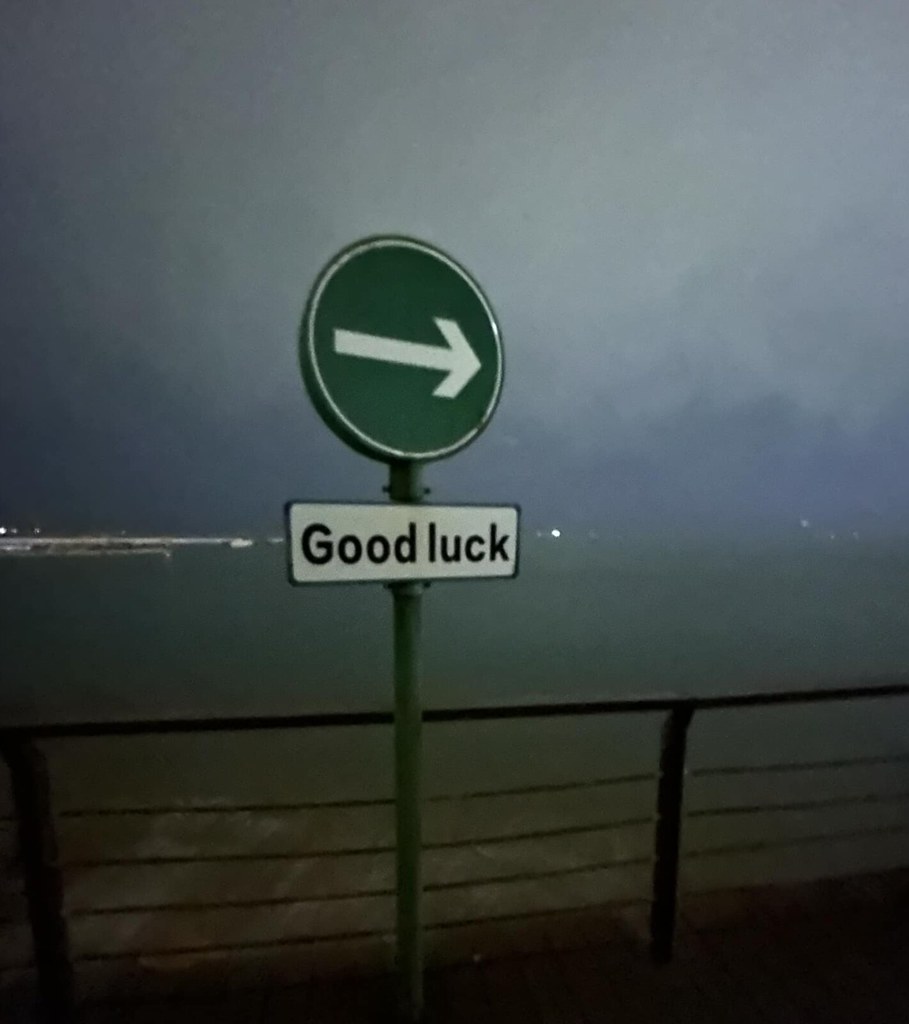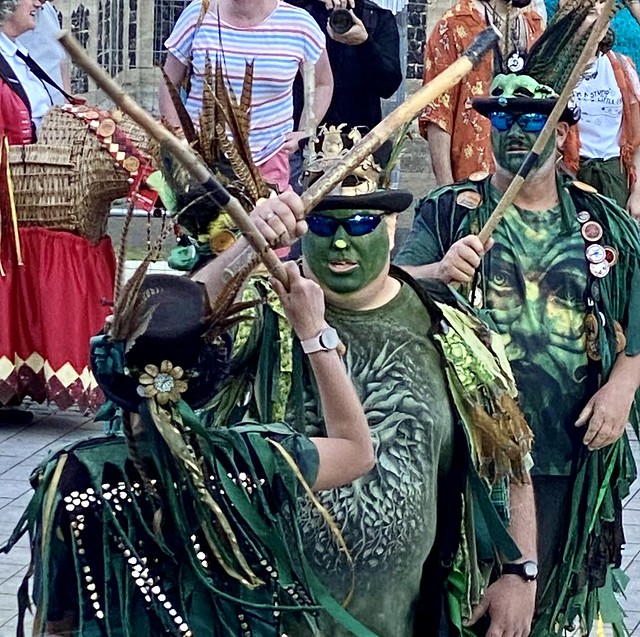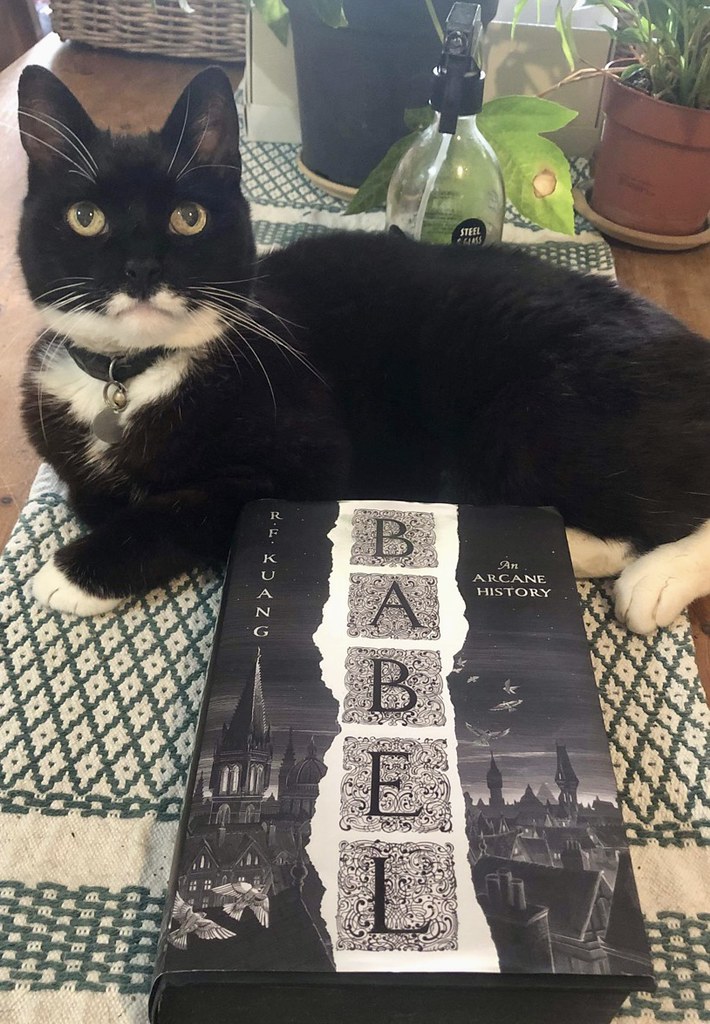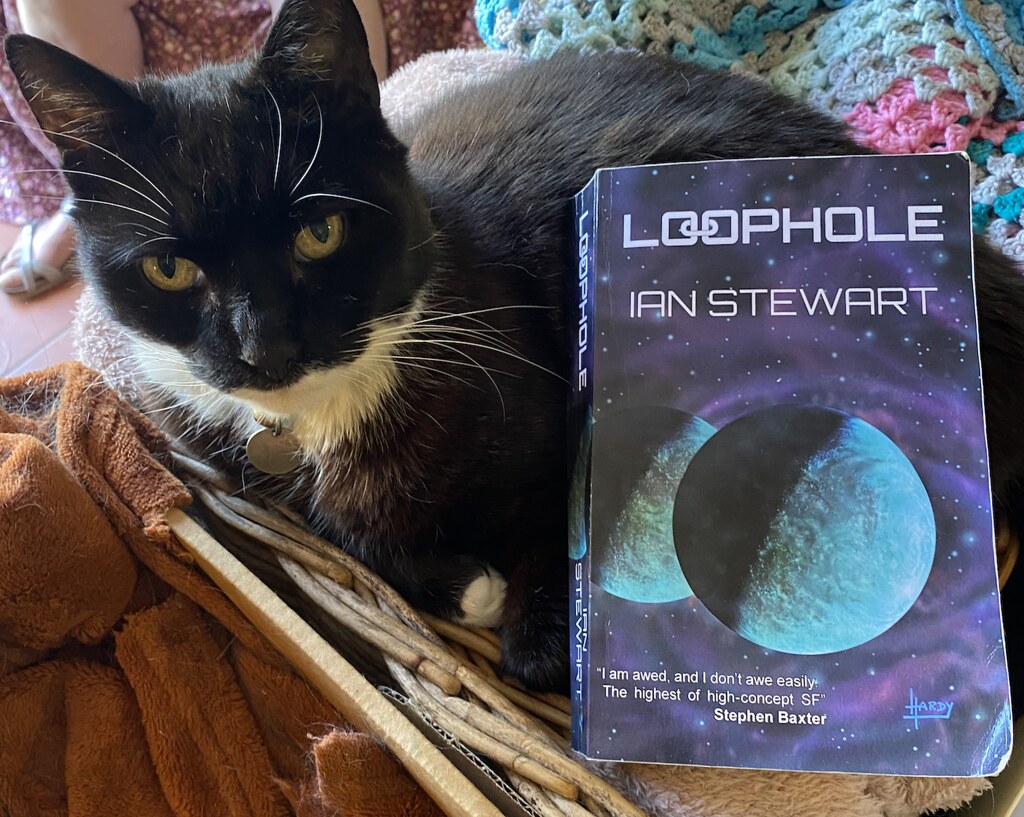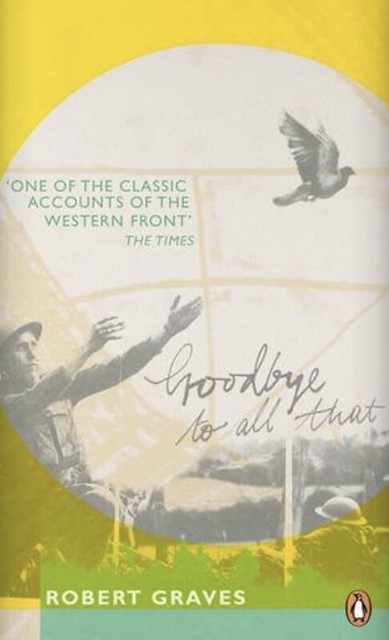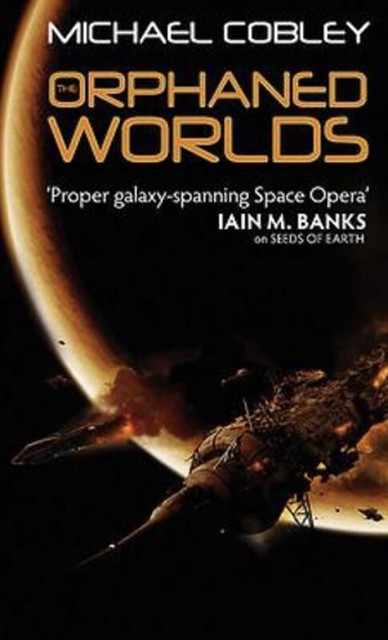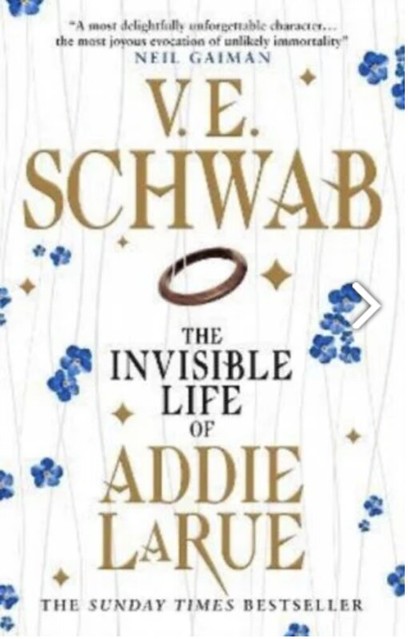 Andrew Smith: Moon Dust I was no more than seven years old, but I can still remember the towering model of a Saturn V rocket in my bedroom. I can still remember, like it was yesterday, or even earlier today, going to Woolworths with five shillings and elevenpence in my pocket (those old copper pennies were heavy) to buy an Airfix kit of the Lunar Module, whence the Apollo astronauts disgorged onto the surface of the Moon. So, so much has changed. Those copper pennies, even Woolworths, are long gone, along with the Apollo space program. But the memory is still green. It all happened in a heated rush, between 1969 and 1972 (the time it took for Led Zeppelin to release their first four albums). But it’s been more than half a century since Apollo 17, the last mission to place a human foot on the Moon. Only twelve people have ever left their bootprints there. All were American, white and male, and they are dying off. When journalist Andrew Smith sought to catch up with as many of them as he could, only nine (as of 2005) were left. None of them was able to answer Smith’s question — what was it like to stand on the Moon? — and have variously suffered in the years since for what seems to be an existential inarticulacy, a failure to quite live up to an experience they can never quite express. To be sure, they have groped for answers in various ways. Some have got religion, of various sorts, from conventional Christianity through Buddhism to New Age philosophy. Others have gone into politics, or business, with varying success. One, Alan Bean (Apollo 12) has become an artist, trying, and trying again, to capture the moment on the Moon in paint. Almost all suffered a fearful personal toll — the divorce rate among Apollo astronauts was huge. What was it all for, then? What justified the immense cost (though much less than the war in ‘nam)? The personal sacrifice? For Smith this is a personal story — as Apollo will ever be to all those little boys with models of rockets in their bedrooms — and we get a lot of personal anecdotes as well as documentary. He even falls into the trap (as I did once, pointed out by a reviewer of one of my own books) of citing the model of rental car he was driving as he sought his ageing and often reticent interviewees. His conclusion was that Apollo might have, in part, been many things. An urge to put one over the Soviets, certainly. A desire to explore new technology, possibly. A wish to keep people employed in the aerospace sector in three states with large numbers of voters (Florida, Texas and California), cynically. But what it was, most of all, was theatre, spectacle on a grand scale. Spectacle never to be repeated. More than 400 people have since gone into space, but never more than low-Earth orbit. Only the Apollo astronauts ventured further. There are those — a minority, but a sizeable one — that thinks the whole thing, the Moon landings and attendant hoopla — was an elaborate hoax. Perhaps it was all a dream. Even before my Airfix models, I came across a book in my elementary school library. It was called You Will Go To The Moon. Funny, most of one’s dreams are forgotten soon after waking. A few, though, remain vivid.
Andrew Smith: Moon Dust I was no more than seven years old, but I can still remember the towering model of a Saturn V rocket in my bedroom. I can still remember, like it was yesterday, or even earlier today, going to Woolworths with five shillings and elevenpence in my pocket (those old copper pennies were heavy) to buy an Airfix kit of the Lunar Module, whence the Apollo astronauts disgorged onto the surface of the Moon. So, so much has changed. Those copper pennies, even Woolworths, are long gone, along with the Apollo space program. But the memory is still green. It all happened in a heated rush, between 1969 and 1972 (the time it took for Led Zeppelin to release their first four albums). But it’s been more than half a century since Apollo 17, the last mission to place a human foot on the Moon. Only twelve people have ever left their bootprints there. All were American, white and male, and they are dying off. When journalist Andrew Smith sought to catch up with as many of them as he could, only nine (as of 2005) were left. None of them was able to answer Smith’s question — what was it like to stand on the Moon? — and have variously suffered in the years since for what seems to be an existential inarticulacy, a failure to quite live up to an experience they can never quite express. To be sure, they have groped for answers in various ways. Some have got religion, of various sorts, from conventional Christianity through Buddhism to New Age philosophy. Others have gone into politics, or business, with varying success. One, Alan Bean (Apollo 12) has become an artist, trying, and trying again, to capture the moment on the Moon in paint. Almost all suffered a fearful personal toll — the divorce rate among Apollo astronauts was huge. What was it all for, then? What justified the immense cost (though much less than the war in ‘nam)? The personal sacrifice? For Smith this is a personal story — as Apollo will ever be to all those little boys with models of rockets in their bedrooms — and we get a lot of personal anecdotes as well as documentary. He even falls into the trap (as I did once, pointed out by a reviewer of one of my own books) of citing the model of rental car he was driving as he sought his ageing and often reticent interviewees. His conclusion was that Apollo might have, in part, been many things. An urge to put one over the Soviets, certainly. A desire to explore new technology, possibly. A wish to keep people employed in the aerospace sector in three states with large numbers of voters (Florida, Texas and California), cynically. But what it was, most of all, was theatre, spectacle on a grand scale. Spectacle never to be repeated. More than 400 people have since gone into space, but never more than low-Earth orbit. Only the Apollo astronauts ventured further. There are those — a minority, but a sizeable one — that thinks the whole thing, the Moon landings and attendant hoopla — was an elaborate hoax. Perhaps it was all a dream. Even before my Airfix models, I came across a book in my elementary school library. It was called You Will Go To The Moon. Funny, most of one’s dreams are forgotten soon after waking. A few, though, remain vivid.
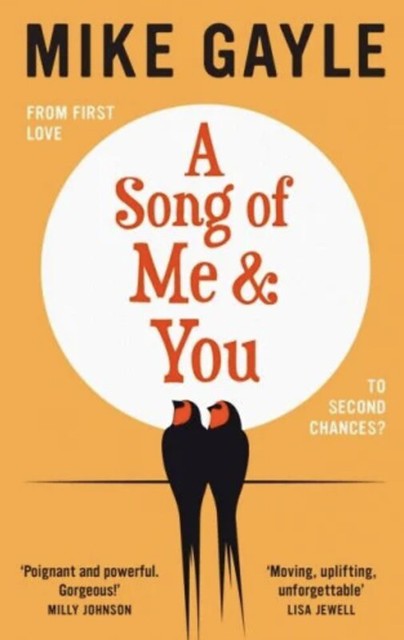 Mike Gayle: A Song of Me and You I feel I owe author Mike Gayle one. After all, he was on the judging panel for last year’s Royal Society Science Book Prize that selected my recent tome as the winner. Thanks Mr Gayle! I spotted one of his novels on my sister’s sofa so I thought I’d dive in, and selected this one more or less randomly as an audiobook. I had no idea that it was a romantic novel, probably of the genre once patronisingly called ‘chick lit’, but it was very enjoyable for all that, and I looked forward to a daily dose of it while walking the dogs each morning. Two months before the story opens, Helen, a 45-year-old, part-time primary school teacher from Manchester, is deserted by her husband Adam for a younger model, leaving her with two teenage children. The story opens just after Adam has taken the teenagers away on a camping trip. Helen, deflated, sublimates her anger and frustration in housework before the doorbell rings again. At the door is Ben, who just happens to be the lead singer of the world’s biggest rock band. He is hiding from the press and seeking a break from his roller coaster career. He asks Helen if he can lie low for a few hours. But why would Ben turn up at Helen’s door: her, of all people? Well, there’s more to this than meets the eye. Ben and Helen grew up together and were childhood sweethearts before events took each of them in their own separate directions. It’s a good summer read (indeed, I was looking for something suitably light) and it is enviably well constructed, with some twists subverting what might otherwise be a predictable plot. My only criticism is one of style. There are a lot of sentences that begin with phrases starting with a present participle, like this: ‘thinking that this book review was going on too long, Henry sought a convenient ending’. And there were similar sentences of this form: ‘as Henry was winding up his book review, his thoughts wandered to the possibility of making another cup of coffee’. But nothing that a sharp-eyed editor couldn’t have sorted out.
Mike Gayle: A Song of Me and You I feel I owe author Mike Gayle one. After all, he was on the judging panel for last year’s Royal Society Science Book Prize that selected my recent tome as the winner. Thanks Mr Gayle! I spotted one of his novels on my sister’s sofa so I thought I’d dive in, and selected this one more or less randomly as an audiobook. I had no idea that it was a romantic novel, probably of the genre once patronisingly called ‘chick lit’, but it was very enjoyable for all that, and I looked forward to a daily dose of it while walking the dogs each morning. Two months before the story opens, Helen, a 45-year-old, part-time primary school teacher from Manchester, is deserted by her husband Adam for a younger model, leaving her with two teenage children. The story opens just after Adam has taken the teenagers away on a camping trip. Helen, deflated, sublimates her anger and frustration in housework before the doorbell rings again. At the door is Ben, who just happens to be the lead singer of the world’s biggest rock band. He is hiding from the press and seeking a break from his roller coaster career. He asks Helen if he can lie low for a few hours. But why would Ben turn up at Helen’s door: her, of all people? Well, there’s more to this than meets the eye. Ben and Helen grew up together and were childhood sweethearts before events took each of them in their own separate directions. It’s a good summer read (indeed, I was looking for something suitably light) and it is enviably well constructed, with some twists subverting what might otherwise be a predictable plot. My only criticism is one of style. There are a lot of sentences that begin with phrases starting with a present participle, like this: ‘thinking that this book review was going on too long, Henry sought a convenient ending’. And there were similar sentences of this form: ‘as Henry was winding up his book review, his thoughts wandered to the possibility of making another cup of coffee’. But nothing that a sharp-eyed editor couldn’t have sorted out.
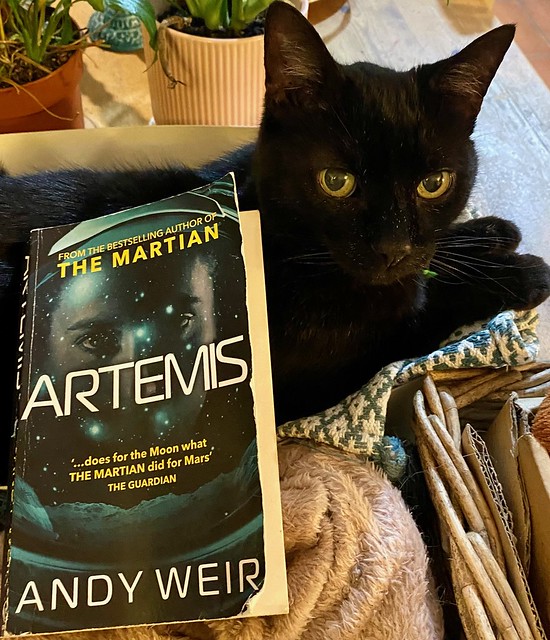 Andy Weir: Artemis You might remember Andy Weir as the author of The Martian, a rather fine near-future SF adventure about an astronaut stranded on Mars, and the mission sent to rescue him. It was made into a heartwarming
Andy Weir: Artemis You might remember Andy Weir as the author of The Martian, a rather fine near-future SF adventure about an astronaut stranded on Mars, and the mission sent to rescue him. It was made into a heartwarming motion picture film magic-lantern production starring Matt Damon. A characteristic that set The Martian (book and magic-lantern production) apart from much recent SF was its entirely unpretentious style. It was hard SF in the old-fashioned sense. That is, the plot turned around entirely believable and achievable science, without resorting to hyperspace or quasi-mystical woo. The same is true for Artemis, Weir’s second novel. This is set in the eponymous city (really, no more than a small western frontier town) on the Moon, a short distance from the landing site of Apollo 11 (which has its own visitor centre) and concerns the exploits of Jazz Bashara, a porter and sometime smuggler of contraband. One of Jazz’s contraband clients asks her to perform an audacious act of industrial sabotage that propels her into a nail-biting adventure. So as well as being a good old-fashioned SF romp, it’s a great thriller. Weir gets a gold star and a tick for diversity points (Jazz is female and Muslim; Artemis is a wholly owned subsidiary of a Kenyan aerospace company), and even more gold stars and ticks for the hard science (the plot turns, in places, on quirks of industrial chemistry). But most of all, because it’s a well-knit, pacy read. Highly recommended.
 Adam Kay: Undoctored I am sure that you’ll both (if you are in the UK at least) have heard of Adam Kay, a hospital gynaecologist who was so beaten down by the relentless pressure of working for the National Health Service (NHS) that he quit and became a writer instead. He turned his considerable talents to a best-selling memoir, This Is Going To Hurt, which was made into an affecting TV series starring soon-to-be national treasure Ben Whishaw (yes, him, the voice of Paddington Bear). This Is Going To Hurt (and its modest sequel, The Nightshift Before Christmas) were, in places, laugh-out-loud funny, though often in the dark-tinged humour that clinicians use to get through each endless, blood-soaked shift. Undoctored is a collection of further anecdotes from Kay’s medical life, mixed in with recollections from his subsequent often hand-to-mouth existence as a jobbing stand-up comic and writer, until he made it big with T. I. G. T. H. If you have read T. I. &c., you’ll know what to expect — or you’ll think you do — but be prepared. If you thought that some parts of T. I. &c were dark, then Undoctored is as dark as The Dark Lord Sauron teaming up with Voldemort to track down an eyeless black cat in a coal cellar during a power cut. While wearing sunglasses. At night. Snippets of Undoctored occasion a wry smile: whole scads are almost too hard to read. To say that Undoctored is confessional is accurate, but hardly gives the flavour of say, Kay’s pages-long account of suffering from an eating disorder, or of being raped. To put things down on paper is brave. To let such experiences out of doors deserves a medal. Beneath the thin (and often absent) humour is a serious message, and it’s the same as that hammered home in T. I. &c. And that is that many health-care professionals suffering from overwork, stress, fatigue and a range of problems possibly connected (or exacerbated) by the above, do so in silence, fearful of letting the side down. What should change? To say that the NHS is underfunded, as Kay does explicitly, is a given, but then, it’s in the nature of organisations such as the NHS always to be underfunded. What Kay says, more often, but not quite so directly, is that what needs to change is an attitude, found among doctors themselves. Some senior doctors, or consultants, come over as arrogant and entitled, and assume that because they had to suck it up at medical school (and before that, at their public school, and, before that, at home) then everyone else must do so, too. The selection of medical students should also change. To get into medical school one not only has to demonstrate stellar academic ability but still have time for a range of hobbies and voluntary work. This is all commendable, but do such things automatically translate into being a good doctor? Kay thinks not, but does not offer any alternative prescription. As a wise doctor once wrote, ‘h9:{(*&^SH\ £$%^(•¶∞’.
Adam Kay: Undoctored I am sure that you’ll both (if you are in the UK at least) have heard of Adam Kay, a hospital gynaecologist who was so beaten down by the relentless pressure of working for the National Health Service (NHS) that he quit and became a writer instead. He turned his considerable talents to a best-selling memoir, This Is Going To Hurt, which was made into an affecting TV series starring soon-to-be national treasure Ben Whishaw (yes, him, the voice of Paddington Bear). This Is Going To Hurt (and its modest sequel, The Nightshift Before Christmas) were, in places, laugh-out-loud funny, though often in the dark-tinged humour that clinicians use to get through each endless, blood-soaked shift. Undoctored is a collection of further anecdotes from Kay’s medical life, mixed in with recollections from his subsequent often hand-to-mouth existence as a jobbing stand-up comic and writer, until he made it big with T. I. G. T. H. If you have read T. I. &c., you’ll know what to expect — or you’ll think you do — but be prepared. If you thought that some parts of T. I. &c were dark, then Undoctored is as dark as The Dark Lord Sauron teaming up with Voldemort to track down an eyeless black cat in a coal cellar during a power cut. While wearing sunglasses. At night. Snippets of Undoctored occasion a wry smile: whole scads are almost too hard to read. To say that Undoctored is confessional is accurate, but hardly gives the flavour of say, Kay’s pages-long account of suffering from an eating disorder, or of being raped. To put things down on paper is brave. To let such experiences out of doors deserves a medal. Beneath the thin (and often absent) humour is a serious message, and it’s the same as that hammered home in T. I. &c. And that is that many health-care professionals suffering from overwork, stress, fatigue and a range of problems possibly connected (or exacerbated) by the above, do so in silence, fearful of letting the side down. What should change? To say that the NHS is underfunded, as Kay does explicitly, is a given, but then, it’s in the nature of organisations such as the NHS always to be underfunded. What Kay says, more often, but not quite so directly, is that what needs to change is an attitude, found among doctors themselves. Some senior doctors, or consultants, come over as arrogant and entitled, and assume that because they had to suck it up at medical school (and before that, at their public school, and, before that, at home) then everyone else must do so, too. The selection of medical students should also change. To get into medical school one not only has to demonstrate stellar academic ability but still have time for a range of hobbies and voluntary work. This is all commendable, but do such things automatically translate into being a good doctor? Kay thinks not, but does not offer any alternative prescription. As a wise doctor once wrote, ‘h9:{(*&^SH\ £$%^(•¶∞’.
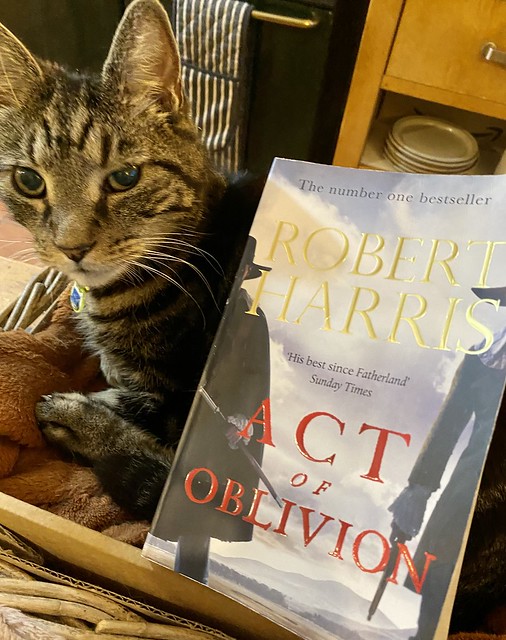 Robert Harris: Act of Oblivion By now you’ll both know that I am a fan of Harris, writer of peerless historical thrillers (Fatherland, Pompeii); so-so SF (The Fear Index, The Second Sleep); and the best novel about old men in frocks you’ll ever read (Conclave). This one concerned a period of history about which I knew little – the English Civil War and its aftermath. The early 17th Century was a period of pronounced religious strife in Europe. Europe saw the Thirty Years War (1618-1648), in terms of population loss and displacement, one of the most destructive conflicts to hit the continent. In Britain, religious and political turmoil led to the execution of the king, Charles I, and a decade or so in which England was a republic governed occasionally by parliament, but mostly by the fiat of a military dictator, Oliver Cromwell. After Cromwell’s death England reverted to being a monarchy under Charles II. Parliament forgave all those who’d participated in the interregnum under the so-called Act of Oblivion: all except for those men who’d signed the death warrant of the late king. Harris’ novel concerns the exploits of Richard Naylor, the manhunter charged with tracking down the regicides and bringing them to justice (which was — be warned — unbelievably gory, and described in lurid detail). Two of the regicides, the puritan Ned Whalley and his even more millennial son-in-law William Goffe, managed to elude his grasp by escaping to New England. Just about everything in the novel really happened — Whalley and Goffe were real people. The only fiction is the character of Nayler himself. And given that you can look up all the events, and get some idea of the ending, it’s a testament to Harris’ skill that he keeps the pages turning nonetheless.
Robert Harris: Act of Oblivion By now you’ll both know that I am a fan of Harris, writer of peerless historical thrillers (Fatherland, Pompeii); so-so SF (The Fear Index, The Second Sleep); and the best novel about old men in frocks you’ll ever read (Conclave). This one concerned a period of history about which I knew little – the English Civil War and its aftermath. The early 17th Century was a period of pronounced religious strife in Europe. Europe saw the Thirty Years War (1618-1648), in terms of population loss and displacement, one of the most destructive conflicts to hit the continent. In Britain, religious and political turmoil led to the execution of the king, Charles I, and a decade or so in which England was a republic governed occasionally by parliament, but mostly by the fiat of a military dictator, Oliver Cromwell. After Cromwell’s death England reverted to being a monarchy under Charles II. Parliament forgave all those who’d participated in the interregnum under the so-called Act of Oblivion: all except for those men who’d signed the death warrant of the late king. Harris’ novel concerns the exploits of Richard Naylor, the manhunter charged with tracking down the regicides and bringing them to justice (which was — be warned — unbelievably gory, and described in lurid detail). Two of the regicides, the puritan Ned Whalley and his even more millennial son-in-law William Goffe, managed to elude his grasp by escaping to New England. Just about everything in the novel really happened — Whalley and Goffe were real people. The only fiction is the character of Nayler himself. And given that you can look up all the events, and get some idea of the ending, it’s a testament to Harris’ skill that he keeps the pages turning nonetheless.
 Richard Osman: The Last Devil to Die Tucked away in the section of the shop labelled ‘Cosy Crime’ you’ll find the sensationally successful thrillers by man-on-the-telly Osman. The Last Devil to Die is the fourth, after — in order — The Thursday Murder Club, The Man who Died Twice, and The Bullet that Missed. If you were thinking that he sells shedloads of novels simply because he’s the man on the telly, you’d be wrong. Each one is devilishly plotted; beautifully wrought; contains characters you can believe in and root for; and are also very funny. In short, they deserve all the acclaim that has been heaped upon them. If you’ve been living on a remote asteroid for the past few years, the novels concern the crime-fighting exploits of a seemingly ill-assorted group of pensioners living in an upscale retirement village in Sussex, England. There’s Ron, a pugnacious former trade union leader and West Ham supporter; Ibrahim, a semi-retired psychiatrist who’s definitely on the spectrum; Elizabeth, a former MI6 operative who still has Contacts; and Joyce, a chatty ex-nurse who’s always there to solve all problems with bakery products, and through whose eyes we see much of the action. And that’s really all you need to know. Osman sidesteps the pitfall that could so easily befall novels like this — that one could easily get bored of the schtick of doddery senior citizens standing up to (and outwitting) robbers, drug lords, jewel thieves and assorted lowlives, not to mention the police. He does this by deepening the characterisation with each novel by discussing the pains, problems and consolations of age. Without giving anything away, The Last Devil To Die discusses Alzheimer’s Disease in some depth, from the perspective of a sufferer and those looking on helplessly, in a way that is both sensitive and deeply moving. I read the first three in the series in print: the fourth I listened to as an audiobook, read by Fiona Shaw.
Richard Osman: The Last Devil to Die Tucked away in the section of the shop labelled ‘Cosy Crime’ you’ll find the sensationally successful thrillers by man-on-the-telly Osman. The Last Devil to Die is the fourth, after — in order — The Thursday Murder Club, The Man who Died Twice, and The Bullet that Missed. If you were thinking that he sells shedloads of novels simply because he’s the man on the telly, you’d be wrong. Each one is devilishly plotted; beautifully wrought; contains characters you can believe in and root for; and are also very funny. In short, they deserve all the acclaim that has been heaped upon them. If you’ve been living on a remote asteroid for the past few years, the novels concern the crime-fighting exploits of a seemingly ill-assorted group of pensioners living in an upscale retirement village in Sussex, England. There’s Ron, a pugnacious former trade union leader and West Ham supporter; Ibrahim, a semi-retired psychiatrist who’s definitely on the spectrum; Elizabeth, a former MI6 operative who still has Contacts; and Joyce, a chatty ex-nurse who’s always there to solve all problems with bakery products, and through whose eyes we see much of the action. And that’s really all you need to know. Osman sidesteps the pitfall that could so easily befall novels like this — that one could easily get bored of the schtick of doddery senior citizens standing up to (and outwitting) robbers, drug lords, jewel thieves and assorted lowlives, not to mention the police. He does this by deepening the characterisation with each novel by discussing the pains, problems and consolations of age. Without giving anything away, The Last Devil To Die discusses Alzheimer’s Disease in some depth, from the perspective of a sufferer and those looking on helplessly, in a way that is both sensitive and deeply moving. I read the first three in the series in print: the fourth I listened to as an audiobook, read by Fiona Shaw.
 Betty M. Owen (ed): Eleven Great Horror Stories As you both probably know I am a confirmed Haunter of
Betty M. Owen (ed): Eleven Great Horror Stories As you both probably know I am a confirmed Haunter of 

